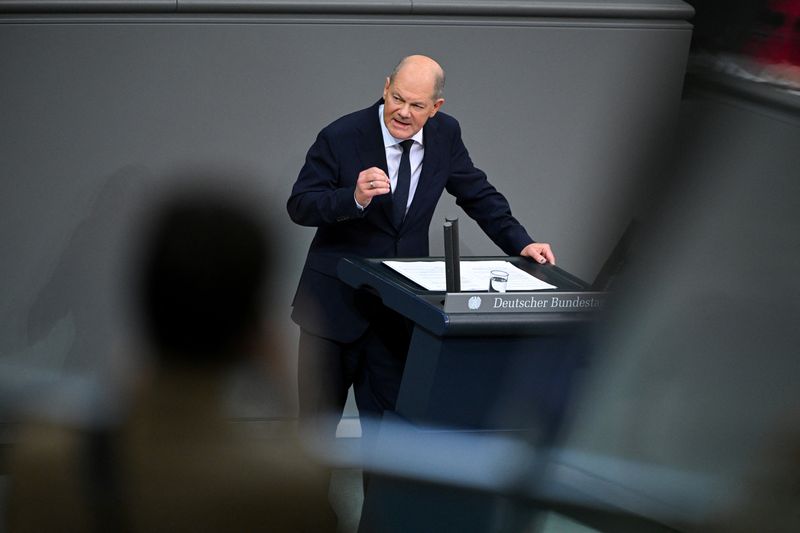By Thomas Escritt and Sarah Marsh
BERLIN (Reuters) – Chancellor Olaf Scholz on Wednesday appealed to parties to pass measures such as raising child benefit and lifting tax thresholds before a February snap election, stressing that Germans did not need to choose between security and prosperity.
Scholz was addressing other party leaders in parliament in their first public head-to-head since the collapse of the chancellor’s ruling coalition last week forced the country into a snap election that will likely take place in February.
With parties already in election mode, Scholz is fighting an uphill battle to keep his job, with polls showing the conservative opposition led by Friedrich Merz set to regain power.
The government’s collapse hits Germany at a vulnerable time, with Europe’s largest economy facing a second year of contraction and anxieties festering over trade tariffs, future support for Ukraine and the competitiveness of German firms.
Speaking to the Bundestag, Scholz said there should be agreement on increasing child benefit and tackling fiscal drag. He said Europe had a responsibility towards Ukraine but that aid money should not lead to cuts in pensions or care at home.
“Let us work together for the good of the country until the new election,” he said. He said how to finance support for Ukraine would be a key issue during the election.
“In my view, it cannot and should not be the case that support for Ukraine leads to cuts in pensions, care and health,” said Scholz, who has proposed overriding the country’s self- imposed debt brake in order to finance Ukraine support.
The leadership in Scholz’s Social Democrats (SPD) has so far publicly backed him to stay on as leader despite his low personal ratings and though a majority even of SPD voters would prefer Defence Minister Boris Pistorius in charge.
Setting out his stall, Merz earlier on Wednesday signaled a willingness to reform a constitutionally enshrined limit on state spending known as the debt brake, which was introduced under former conservative Chancellor Angela Merkel in 2009.

